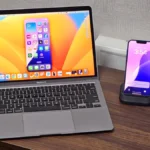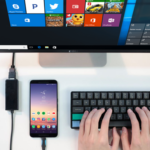There’s no need to worry if you’ve heard about TunnelVision VPN attacks.

In today’s world, cyberattacks have become ubiquitous, and using a VPN is one of the initial steps people take to prevent them. Nevertheless, despite being reliable in terms of security, VPNs are not infallible and may encounter glitches occasionally.
Ignoring disconnections and service problems, a more significant danger currently exists for VPNs – the TunnelVision VPN assaults. However, what precisely are they? Are they truly such an enormous concern?
What do TunnelVision VPN Attacks refer to?
TunnelVision assaults focus on various network routing methods that enable hackers to circumvent VPN security in select situations. Nevertheless, the TunnelVision VPN assault is not entirely innovative. This underlying technique has been available for over twenty years and its transformation into a comprehensive attack is causing industry-wide panic.
On May 6, 2024, Leviathan Security researchers revealed a security flaw in their research paper. The vulnerability pertains to DHCP (Dynamic Host Configuration Protocol), commonly in most contemporary routers worldwide. Typically used for automatic network and internet setup on devices, the problem highlighted by these experts relates specifically to this feature’s functioning.
What technique has always been underlying?
One aspect of this setup requires your device to know the precise destination for sending traffic to access the Internet. Option 121 in DHCP notably permits assigning alternate routes tailored toward specific destinations.
TunnelVision is the solution in this scenario. This poses significant privacy risks since the entire purpose of using VPNs is data tunneling for enhanced security and confidentiality purposes.
In simpler terms, when you use a network that is not under your control, such as the Wi-Fi networks in hotels or airports, an intruder can access and manipulate the router if certain criteria are met. This could result in diverting internet traffic from your device to go outside of the VPN’s protected tunnel within that network.
Does TunnelVision VPN Attacks Pose the Level of Danger They Are Perceived to Have?
The impact of TunnelVision attacks on VPN providers and networks supporting Option 121 varies considerably based on the device, operating system, and VPN being used.
There are some problems with the way Leviathan characterizes vulnerability. Instead of “decloaking” internet traffic, TunnelVision simply redirects it. While this attack can expose certain TLS headers associated with your online activity, using an effective VPN will still encrypt data packets before they leave your device and enter the network thereby ensuring their confidentiality remains intact.
TunnelVision emphasizes the importance of using reliable VPNs.
What measures can you take to safeguard yourself?
Apart from adhering to standard cybersecurity measures and best practices, you don’t have to take any drastic steps.
Nonetheless, if for some reason you’ve opted for a VPN service with questionable credibility, it’s now time to make the switch.
We offer an all-inclusive range of VPN options suitable for every type of purpose that may serve as your reference guide.
If the router behind your network connection remains uncompromised, TunnelVision attacks cannot harm you. However, even if an attacker gains access to this router and tries to breach your VPN’s security wall, activating the kill switch should keep you safe.
Moreover, connecting via cellular data or phone hotspots can also protect against such threats when accessing the internet on laptop devices.
Conclusion
Cyberattacks are becoming more prevalent, and VPNs are essential in preventing them. However, there is a significant threat to VPNs known as TunnelVision VPN assaults.
These attacks exploit network routing methods, allowing hackers to bypass VPN security. The vulnerability, which has been present for over 20 years, is related to the Dynamic Host Configuration Protocol (DHCP) in routers.
TunnelVision allows for alternate routes for specific destinations, posing privacy risks. The impact of TunnelVision attacks varies depending on the device, operating system, and VPN being used.
VPNs encrypt data packets before they leave the device, ensuring confidentiality. To protect yourself, adhere to standard cybersecurity measures and best practices.
If your VPN service is questionable, switch to a reliable service. If your router remains uncompromised, activating the kill switch can protect you. Connecting via cellular data or phone hotspots can also protect against such threats.





